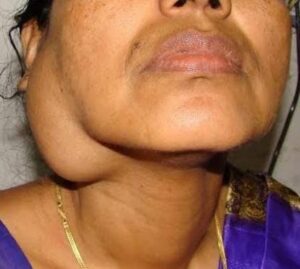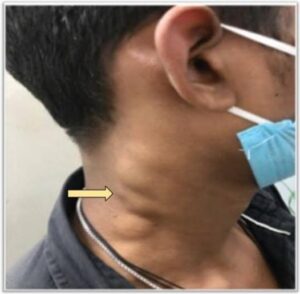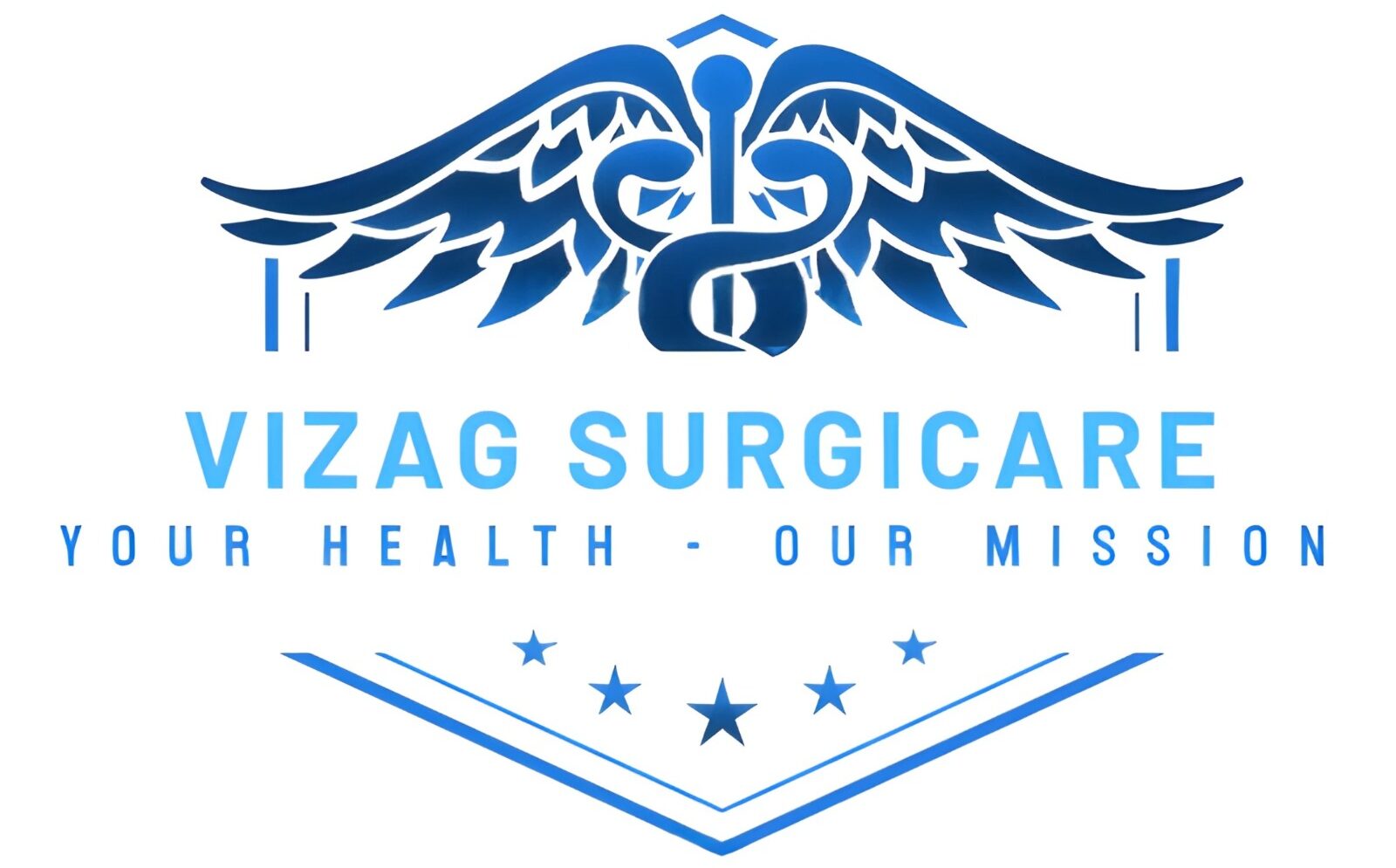Salivary Glands and Cervical Lymph
1. Salivary Glands
Introduction
Salivary glands are important for keeping your mouth healthy and helping you digest food. They make saliva, which keeps your mouth moist and helps break down food. Sometimes, these glands can become swollen or painful. There are three main pairs of salivary glands:
- Parotid glands (in front of the ears)
- Submandibular glands (under the jaw)
- Sublingual glands (under the tongue)
Causes of Salivary gland swelling
- Infections: Viral infections like mumps or bacterial infections can cause swelling (inflame) of the glands.
- Salivary stones: Hard deposits that block saliva flow, causing swelling and pain.
- Cysts or growths: Fluid-filled sacs or tumors, which may be benign or, rarely, cancerous.


Symptoms or Presentation
- Swelling on the side of the face or under the jaw
- Pain, especially when eating or drinking
- Dry mouth or unusual taste
- Bad smell or odour
- Fever or chills (if infected)
- Pus or discharge in the mouth
- Difficulty opening the mouth
Diagnosis
- A thorough physical examination of involved region and oral cavity
- Ultrasound or MRI scan to check the gland structure and involvement of surrounding structures
- CT scan for stones or masses or suspicion of involvement of underlying bone
- Fine needle aspiration or biopsy if needed – to rule out chances of malignancy (cancer)
- Blood tests for presence of infections or autoimmune conditions
Treatment Options
Treatment depends on the cause of swelling and severity of the disease:
- Infections: Antibiotics for bacterial infections; viral infections often improve on their own with rest and fluids.
- Salivary stones: Small stones may be passed naturally or removed using minimally invasive techniques like sialendoscopy; larger stones or blockages may require surgery.
- Cysts or tumors: May need surgical removal, especially if they cause symptoms or are suspicious.
- Supportive care: Warm compresses, gland massage, hydration, and pain relief to ease symptoms.
Post-Surgery Care
After surgery, most patients recover quickly with proper care. We provide:
- Pain management
- Follow-up visits to monitor healing
- Maintain oral hygiene
Conclusion
Salivary gland swelling can cause discomfort, but with timely treatment, it is often easily managed or cured. If you notice swelling or pain near your jaw, cheek, or mouth, don’t wait and neglect – book a consultation today at “Vizag Surgicare” and get the personalised care you need.
Need Help?
We’re Just a Call Away!
2. Cervical Lymph Nodes
Introduction
Cervical lymph nodes are small, oval-shaped glands located in your neck. They are an important part of your immune system, helping your body fight infections by trapping viruses, bacteria, and other harmful substances. Sometimes, these lymph nodes can become swollen or enlarged, a condition known as cervical lymphadenopathy. Swelling in the neck often signals that your body is fighting an infection or other health issues.

Causes of Lymph Node Swelling
Lymph nodes swell when they are working hard to fight infection or when there is inflammation nearby. Common causes include:
- Viral infections (like a cold or flu)
- Bacterial infections (like throat infection or infected teeth)
- Tonsillitis or ear infections
- Skin infections or cuts near the head or neck
- Tuberculosis (TB)
- Autoimmune diseases (like lupus)
- Cancers (like lymphoma or metastasis from other cancers like head and neck cancers)
Symptoms
- A visible lump or swelling on one or both sides of the neck
- Tenderness or pain around the swollen nodes
- Fever, chills, or feeling generally unwell
- Fatigue or body aches
- Difficulty swallowing or breathing if swelling is severe
Diagnosis
Thorough evaluation to be done to find the cause of the swelling, which may include:
- Physical examination – detailed examination of the involved site and all other possible sites of spread of disease
- Blood tests to check for infections or immune problems
- Ultrasound or CT scan of the neck – to know the detailed status of the lymph nodes like number, location and relation of adjacent structures
- Fine needle aspiration (FNA) or biopsy for deeper investigation to rule out any chance of cancer
- Chest X-ray f needed
Treatment Options
Treatment depends on the cause and severity of the swelling:
- Infections: Most infections improve with rest, fluids, and sometimes antibiotics or antiviral medications.
- Autoimmune conditions: May require medications like corticosteroids to reduce inflammation.
- Cancer: Treatment may include surgery, radiation, or chemotherapy depending on the type and stage.
- Symptom relief: Warm compresses and pain relievers can help ease discomfort during recovery.
Conclusion
Cervical lymph node swelling is common and often harmless, but it is important to get it checked if it lasts too long or feels unusual. At our surgery clinic, we provide expert care – whether you need simple treatment, a diagnostic biopsy, or minor surgery. Do not ignore a lump in your neck. Book an appointment today at “Vizag Surgicare” for peace of mind and proper care.
contact us
Get In Touch With Us
phone number
Mobile No 1 : +91-77029 50513
Mobile No 2 : +91-9848638615
Mobile No 3 : +91-9849239213
our address
First Floor, Mohan Medical Shop, Seethammadhara (NE), Visakhapatnam-530013
email address
info@vizagsurgicare.com
